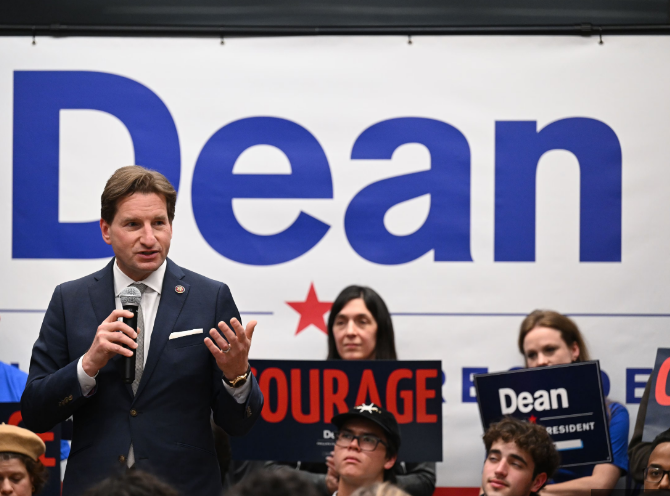In a unanimous decision, the Wisconsin State Supreme Court has taken a significant step in upholding democratic principles by ruling that Rep. Dean Phillips (D-Minn.) must be included on the Democratic primary ballot for the state’s April 2 election. This ruling comes as a victory for Phillips, who has been challenging President Biden for the Democratic nomination. The court highlighted the failure of the bipartisan presidential selection committee to discuss Phillips’ candidacy during a brief January meeting where Biden’s name was swiftly approved. The decision emphasizes the importance of fair consideration for all candidates in the democratic process.
The Wisconsin State Supreme Court’s unanimous decision centers on the procedural failure of the bipartisan presidential selection committee. Despite the swift approval of President Biden’s name during the January meeting, the court found that Phillips’ candidacy was not discussed, as required by law. The committee’s failure to fulfill the statutory requirement of discussing all candidates generally recognized in national news media was a crucial factor in the court’s decision. By underscoring Phillips’ nearly 20% vote share in New Hampshire’s recent primary, the court emphasized the need for fair consideration and discussion of all candidates.
Court’s Opinion on the DNC’s Role
Dean Phillips’ insurgent presidential campaign has been marked by accusations against the Democratic National Committee (DNC), claiming obstruction of the democratic process. The court’s decision lends credibility to Phillips’ argument that the DNC, through schedule changes and a lack of debates, aimed to suppress his candidacy. By ruling in favor of Phillips’ inclusion on the primary ballot, the court indirectly questions the DNC’s role in hindering the democratic process. The decision raises concerns about fairness within the Democratic primary system.

Phillips, a 55-year-old Minnesota Democrat, launched his primary campaign in October with the aim of challenging President Biden for the Democratic nomination. The court’s decision supports Phillips’ claim that the DNC, through schedule changes and a lack of engagement with New Hampshire delegates, sought to undermine his candidacy. The ruling reinforces concerns about transparency and fairness within the Democratic primary process.
Implications for Democracy in Wisconsin
The Wisconsin State Supreme Court’s decision holds broader implications for democracy in the state. By emphasizing the importance of fair consideration and open discussions for all candidates, the court reinforces the democratic principles that form the foundation of the electoral process. The ruling ensures that candidates, regardless of their status, receive due attention and consideration, safeguarding the integrity of the democratic system in Wisconsin.
Transparency and Fairness in Democratic Primaries
As the April 2 election approaches, the court’s decision sets a precedent for transparency and fairness within Democratic primaries. It underscores the need for procedural adherence and thorough consideration of all candidates by election committees. The ruling sends a message about the commitment to democratic values and the importance of maintaining an inclusive electoral process.
Read More:
- Controversial Bioethics: Pregnancy Portrayed as an Illness Sparks Debate on Reproductive Autonomy in Illinois
- Migrant Crime Choices: Unraveling the Surprising Factors Behind Criminal Tactics in New York City
- Miami Teen Faces Legal Consequences Following Molotov Cocktail Incident on Brother’s Ex’s Car
The Wisconsin State Supreme Court’s unanimous decision to include Dean Phillips on the Democratic primary ballot is a reaffirmation of democratic values. By addressing procedural shortcomings and emphasizing fair consideration for all candidates, the court plays a vital role in upholding the integrity of the electoral process. As Wisconsin prepares for its upcoming election, the ruling serves as a reminder of the significance of transparency, fairness, and open discussions in ensuring a robust and democratic electoral system.

